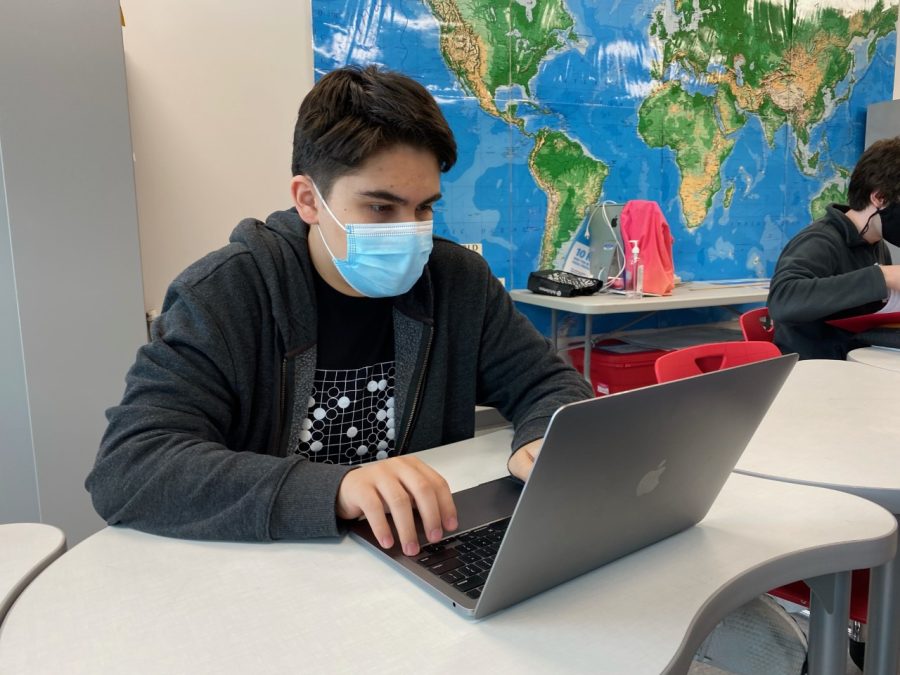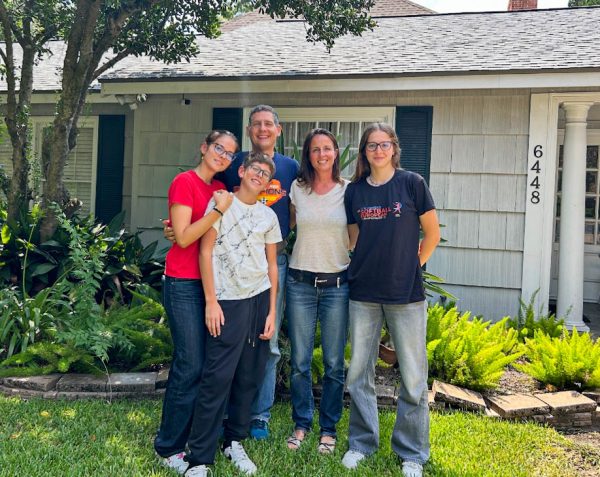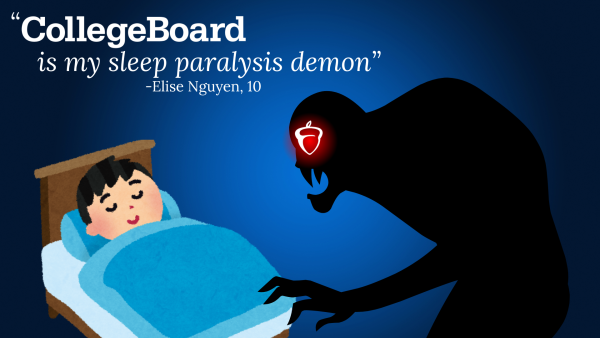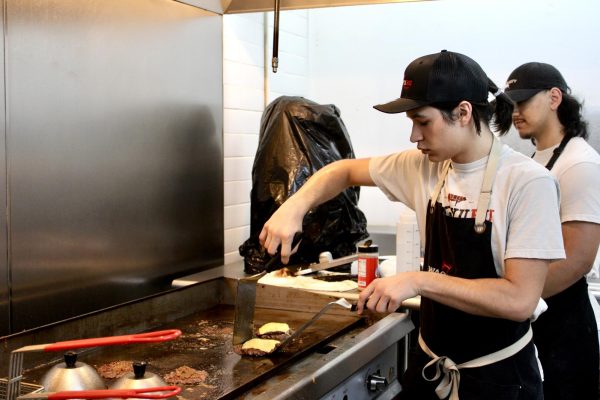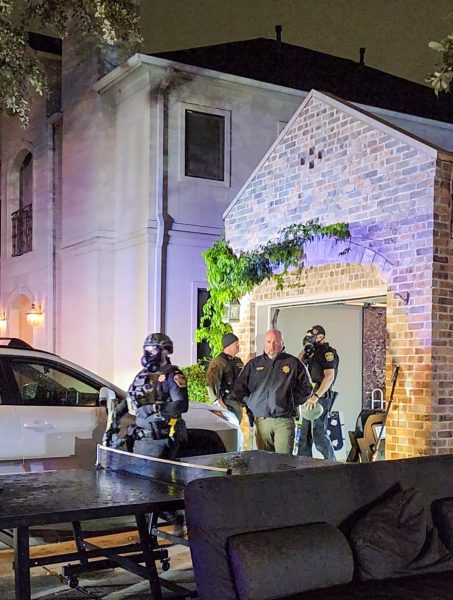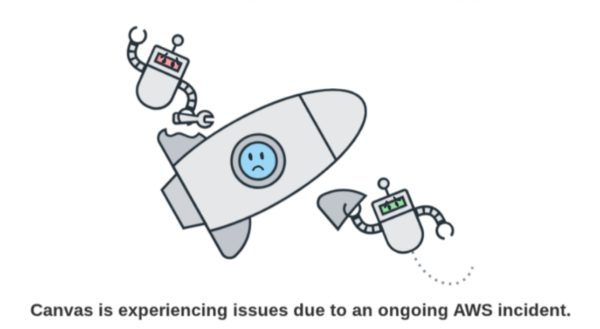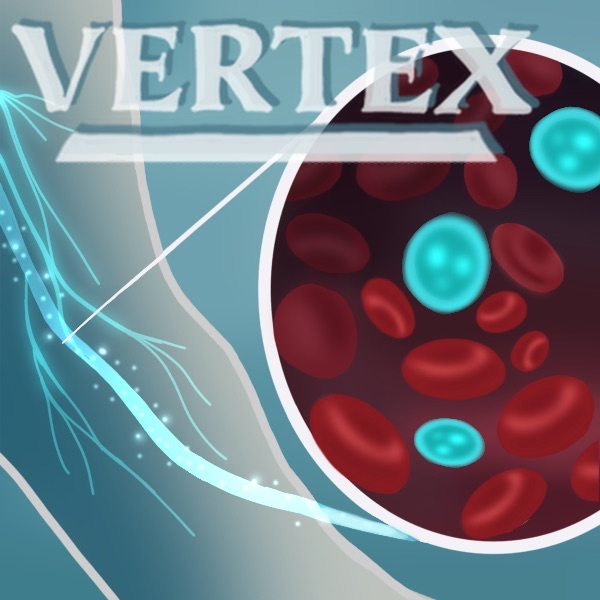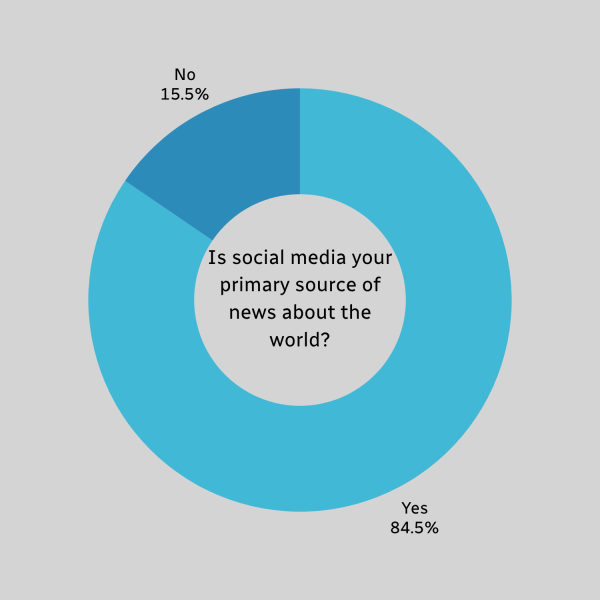Students kick into overdrive to perform well on fast-approaching AP exams
Senior Rafael Gomez studies for AP Human Geography, the test being on May 5th. “AP increases your chance of getting into better schools, and if you care about that, then you should care about taking AP classes.”
One of 16 percent of Bellaire students who will take an AP exam this year, senior Rafael Gomez’s biggest regrets is not developing much of a social circle in high school.
“There’s a direct trade-off between how much time you put into study and how social you can be,” Gomez said. “However, at Bellaire it’s very easy to meet like-minded people that also help with studying in addition to a social circle.”
Gomez said that when students are in higher level or advanced classes, it’s easier to intermingle with people who share the same values of school and task completion, so it’s not like a student is sacrificing one or the other.
“I didn’t really have a large friend group because a lot of my studying was independent and that was just a choice that I made myself,” Gomez said. “Getting good grades is definitely not everything in the equation for success.”
Since middle school, Gomez sought out as many opportunities as possible. He earned credits for art and Integrated Physics and Chemistry (IPC.) In sophomore year, he took AP Computer Science Principles and World History; junior year with AP Computer Science, Statistics, US History, IB language and AP math; and senior year with AP BC Calculus, Human Geography and English Literature and Composition.
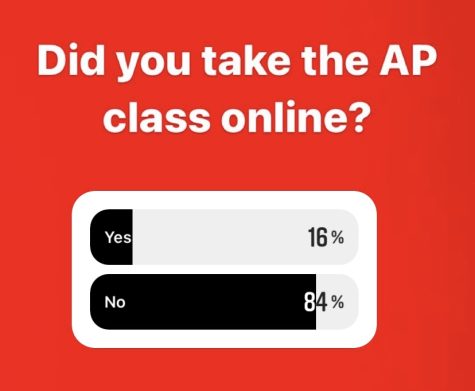
“Starting out, it was like a lot of pressure,” Gomez said. “Because a lot of people in my family haven’t gone to college, I realized that it was very important to earn a good education, so I wanted to try to do well in all my classes to get into a good college. That’s where I almost came to the point of wanting to pass with a near perfect GPA obsessively, studying for all my standardized tests exams. So really, I was just like your common school-obsessive adolescent.”
As for senior Iman Abafita, it’s a different story. While she took AP World History her sophomore year and AP US History her junior year, she decided not to take the AP tests this year.
“I stopped taking AP classes because I didn’t feel like studying so much for one test was worth it and the stress that it gave me just for one college credit,” Abafita said. “It just doesn’t seem worth it.”
Abafita said the transition from paper to digital testing contributed to her anxiety.
“For the AP test I took in 10th grade, it was stressful because it was when COVID first started,” Abafita said. “So I was stressed about logging in on time and making sure my test didn’t have any issues, because a lot of tests froze because everyone was online at the same time. In 11th grade, I wasn’t as stressed, but since we did a lot of work online, I now feel like doing work in-person made it easier to grasp the concepts, so I was kind of worried I wouldn’t fully be prepared for it.”
To prepare for the AP tests, students can study through online videos like AP Live, personal practice tests and books and study groups. On an Instagram poll asking students’ score expectations, 15 students responded with a perfect score (five out of five) or above and 10 students responded with a non-passing score (two and below) or worse.
“I personally tell my students If they feel like what we’re doing in classes and enough like AP classroom and the materials from College Board are not enough. They should buy a prep book. They should build a schedule to focus on exams that they’re not really they feel like they’re not prepared for because prep books are designed to maximize your output on the exam,” AP Physics and Mechanics teacher Jimmy Newland said.
When the AP tests are approaching, students tend to stay up at later hours to study for huge tests. Such procrastination could especially be seen during the pandemic. Studying, specifically cramming, can lead to being overworked, stressed and fatigued. Not only does Abafita disapprove of last minute review, but the American Psychological Association (APA) also suggests studying smart.
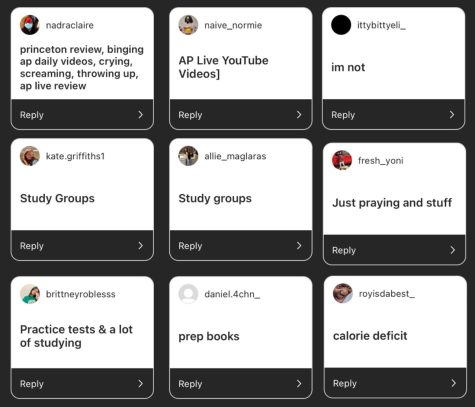
“Cramming is not going to help get plenty of sleep,” Newland said. “If you have a part-time job, try to get time off the week of the exam — but, of course, you can’t do AP prep all the time either.”
Extreme studying can cause a dip in sleep. College students taking the same level courses similarly pull late nights or all-nighters, which causes an unintentional increased risk of academic failure.
“You have to sit down and watch a TV show,” Newland said. “You have to interact with your friends, you need to see your family, you need to have plenty of sleep and a good diet because your mental health is not going to be better during APs, it’s going to be worse. And if anything for the last year, what I’ve learned is our mental health is already something that we all kind of treat secondarily, and now’s not the time.”
While AP tests are important, not getting a perfect, or even passing, score is a “death sentence” to people like sophomore Catherine Bertram. Scoring high on AP tests decorates students’ college resumes, for students like Gomez, devoting time to perfection comes with sacrifices.
“You just need to study if you’re really focused on that college credit,” Abafita said. “Don’t wait until the last minute, but also, if you don’t do well, it doesn’t define your intelligence.”
Your donation will support the student journalists of Bellaire High School. Your contribution will allow us to purchase equipment and cover our annual website hosting costs.


